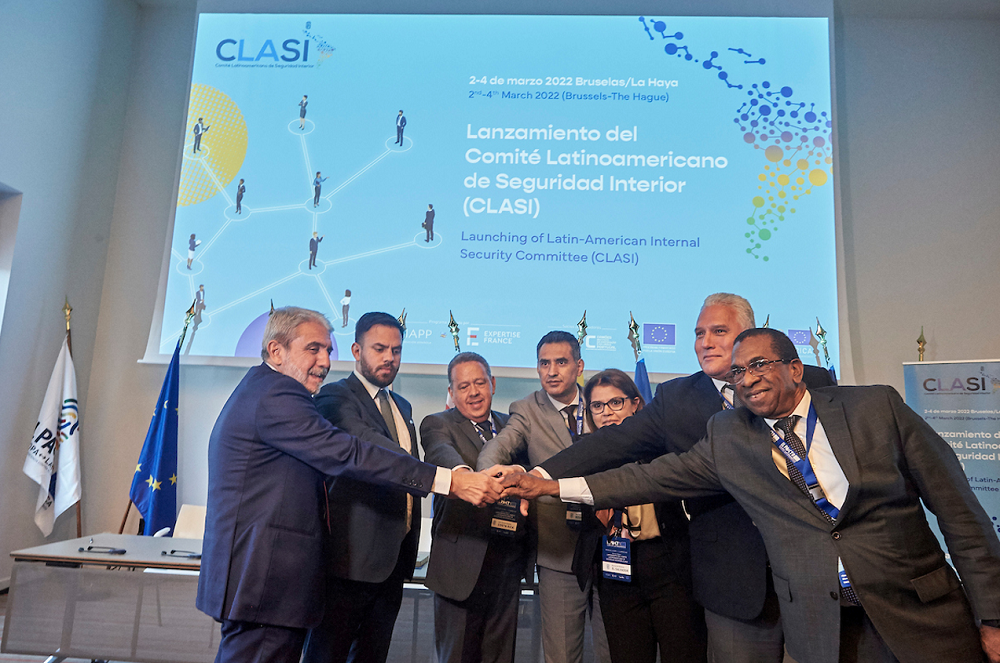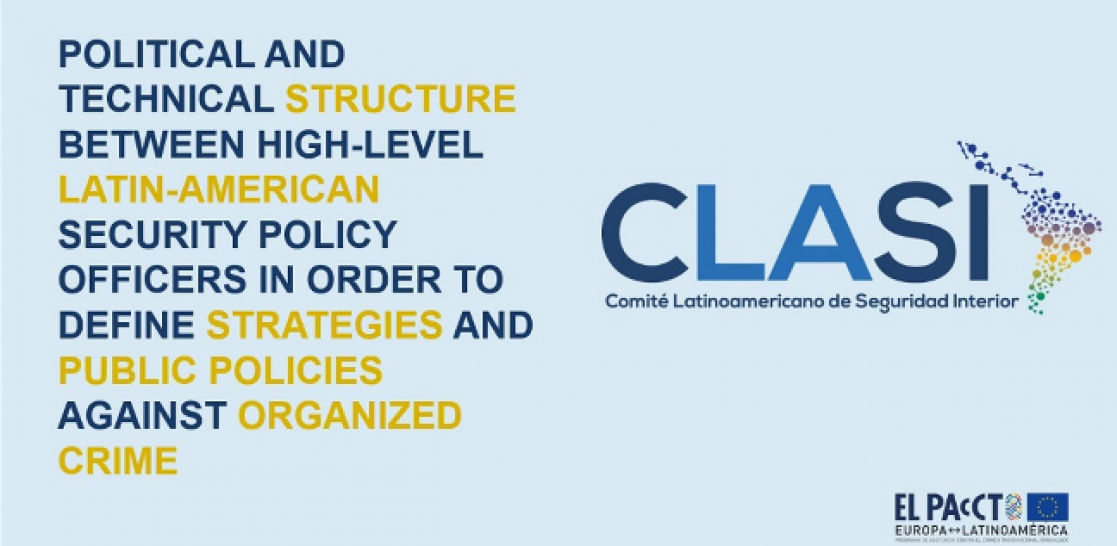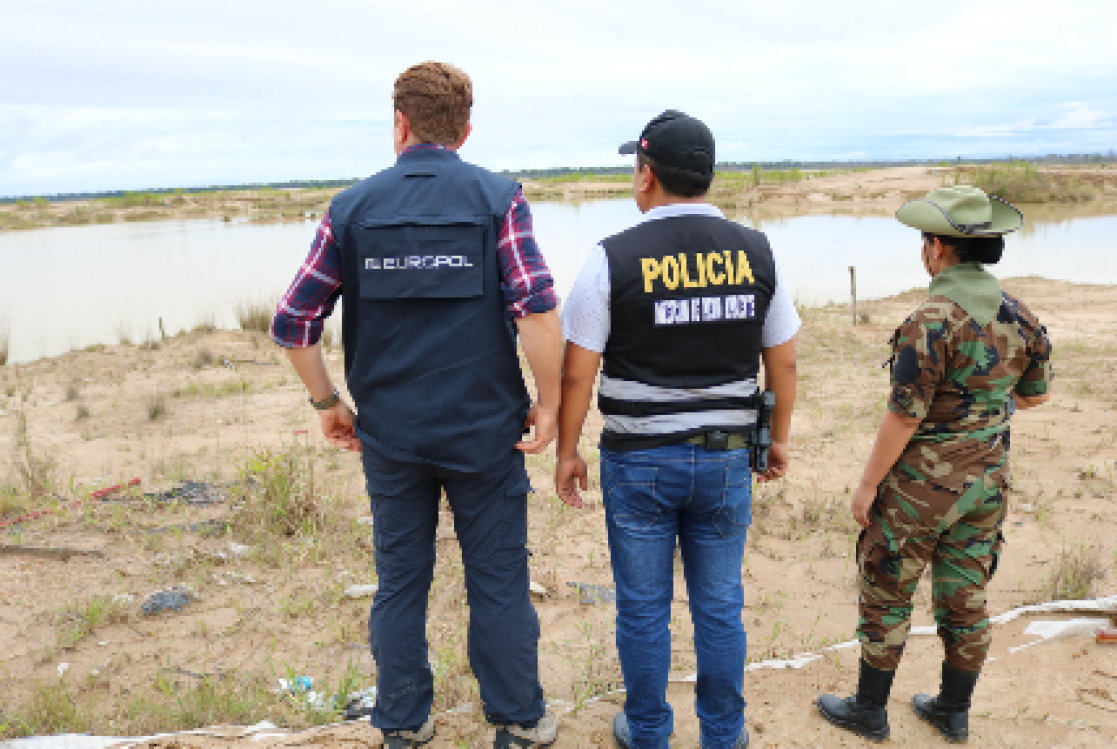Europe and Latin America take security cooperation to the next level

The participating countries - Argentina, Bolivia, Costa Rica, Dominican Republic, Ecuador, El Salvador and Panama- committed to coordinating their actions to address the region's security problems: “to promote, whenever possible, a close articulation of our actions, national strategies and public policies in the fight against transnational organised crime, as well as to encourage the involvement of other Latin American states".
Brian Glynn, managing director for the Americas of the EEAS, said: "The signing of the declaration is a reflection of Latin America's desire to engage with Europe to achieve greater security for all. We know that security challenges are global and the only way to tackle them is through regional and international cooperation. The signing of this declaration I believe will take our partnership to a higher level. We commit ourselves to dialogue not only at the technical level, but also at the political level.”
Jolita Butkeviciene, director for Latin America and the Caribbean of the Directorate-General for International Partnerships in European Commission stressed that the signing is an important milestone for the countries of Latin America, but also for the European Union. “The creation of Latin American Committee on Internal Security (CLASI) and its high-level meetings with the European counterparts in Brussels and The Hague this week marks the beginning of a more political cooperation and partnership on security matters. We are strengthening our role as a strategic ally for Latin America and the Caribbean in the areas of justice and peace".
The Minister of Security of Argentina, the country that will assume the first rotating presidency of CLASI, said that "the reality is that we need Europe as much as the rest of America because we have similar problems. We can help each other".
What is CLASI?
Inspired by the EU’s COSI (Standing Committee on Operational Cooperation on Internal Security), CLASI is an informal dialogue structure between high-level security policy officers of the Latin-American countries. The objective is to gather these officials on a regular basis to jointly define strategies and articulate public policies against transnational organized crime. The creation of the CLASI comes along with an assessment of criminal threats in Latin America (IDEAL – also inspired from the European experience of the Serious and Organized Crime Threat Assessment – SOCTA), in coordination with AMERIPOL. Established by an internal regulation and with a multiannual working plan, it is expected that the CLASI members ensure an effective implementation of the decisions taken.

The European Union with the COSI[1], SOCTA[2] and its EMPACT[3] cycles, has since 10 years successfully implemented a model of policy coordination unique in the world, which has demonstrated to be relevant for a more efficient fight against organized crime. The creation of the CLASI will allow extrapolating this experience to Latin America. Both regions will have one single interlocutor to deal with transnational security issues.
Currently, 12 Latin-American countries have expressed their interest to be part of CLASI : Argentina, Bolivia, Brazil, Chile, Costa Rica, Ecuador, El Salvador, Mexico, Panama, Paraguay Peru and Dominican Republic. The long-term objective is to define and implement a joint security policy cycle .
Support from EL PACcTO Programe
CLASI will be supported by the EL PACcTO Program (Europe Latin America Programme of Assistance against Transnational Organised Crime). This is an international cooperation programme funded by the EU that seeks to contribute to security and justice in Latin America by supporting the fight against transnational organised crime as well as strengthening capacities across regions. EL PAcCTO provides technical assistance and allows sharing experiences and good practices between EU and Latin American countries and among Latin American countries. It’s the first programme covering the whole criminal justice system: police cooperation, cooperation among justice and penitentiary systems. From cross border coordination to fight environmental crimes, preparation of operations to intercept wildlife trafficking between Latin America and the EU, as well as operations to combat illegal mining in several Latin American countries, EL PACcTO also focus on 5 priority cross-cutting areas: cybercrime, corruption, human rights, gender, money laundering.
In 2020, El PACcTO has successfully supported bi-regional operations like the “Retrovirus” against illegal waste of sanitary material in coordination with Europol, and Operation “Spencer” against traffic of wildlife. Other operations have tackled transnational illegal practises within the Latin American region. For instance, Operation “Apollo” acts against illegal mining in Colombia, Ecuador and Peru; or Operation “HG Mercurio” pursues illegal traffic of mercury in Colombia, Mexico and Panama.

In 2021, EL PAcCTO worked with 238 institutions in Latin America, the European Union and other international organizations to strengthen justice and security.
We could highlight the creation of three bi-regional networks against human trafficking, cybercrime and cooperation in penitentiary matters and the consolidation of others against environmental crimes, arms trafficking, sexual abuse of minors and money laundering. This networking will make it possible to coordinate the work between the European Union and Latin America in these areas.
Thanks to the support of the EL PAcCTO, several operations have been carried out against criminal organizations. In Colombia, an organization that traded and trafficked illegally mined gold was dismantled. In 2021, the European Union and Paraguay carried out a joint operation to dismantle a criminal network that exploited at least 40 Paraguayan women in France. In addition, fifteen people were arrested during an anti-drug operation in Honduras with EL PAcCTO support, which trained investigators in new techniques for intercepting communications.
EL PAcCTO has also supported the creation of Specialized Multidisciplinary Teams and Joint Investigation Teams in Colombia, Ecuador, Panama, Paraguay or Uruguay to strengthen inter-institutional coordination on issues such as money laundering, criminal finances or alternative measures to imprisonment.
[1] COSI: Standing Committee on Operational Cooperation on Internal Security
[2] SOCTA: Serious and Organized Crime Threat Assesment
[3] EMPACT: European Multidisciplinary Platform Against Criminal Threats




